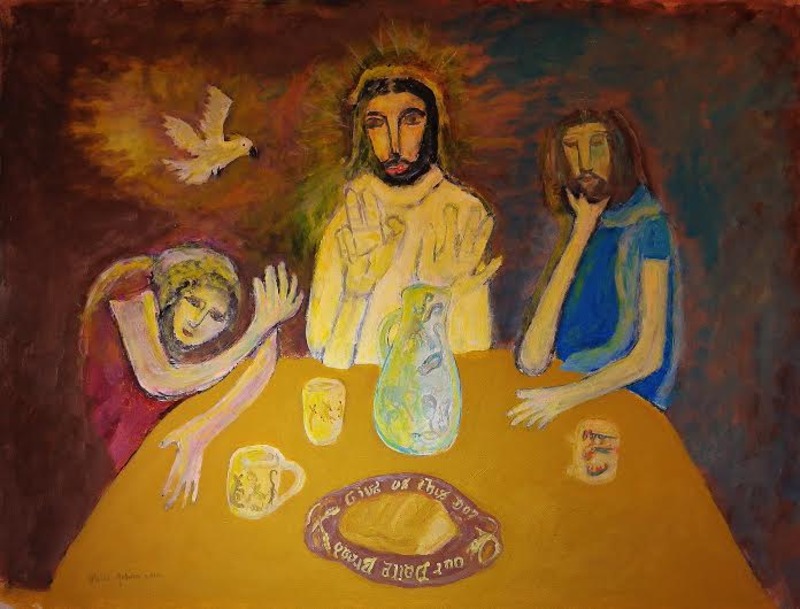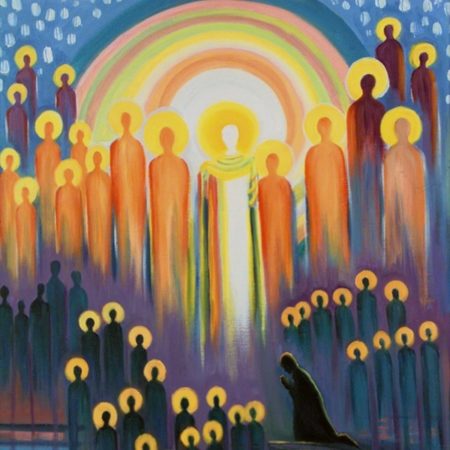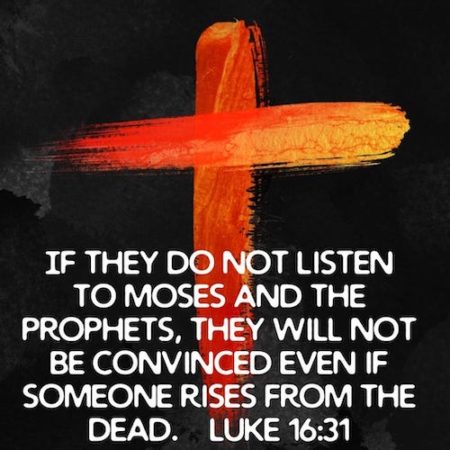The doctrine of the Trinity teaches us how to take sides when the Bible brings us conflicting voices, especially over persistent issues like ethno-nationalism, racism, war, and genocide.
Sermons on Luke
Christ is always stretching the boundaries beyond what we can comprehend, and his ascension stretches his presence to encompass even what seem to us to be his absence.
The physicality of the resurrection is a mystery that assures us that God values and honours us as whole, embodied humans, even if our bodies are damaged or worn out.
God reaches out to us through babies and elderly folks with a message of love and redemption that cuts through the theological justifications of empire and warmongering and calls us to peace.
The the birth of Jesus we see the beginning of a peace mission that is not based on force but on patience, forgiveness and presence.
Jesus calls us to look to the new things God is doing and seeks to humbly cooperate with them and bear witness to them.
Jesus meets us in our doubts and discombobulation and gives us instead a community of joyful hope.
Whether or not you can accept the idea of a personal devil, there are forces of evil in the world that are bigger and more powerful than our own inner flaws, but conscious and united, we are stronger still.
The particularity of Jesus’s identity scandalises our tribal sensibilities, but our attempts to erase such details in favour of a more “universal” truth inevitably fail to convey the good news of God with us.
Jesus comes to break us free from oppressive understandings of God and of God’s expectations of us.
The global social breakdown of which Jesus speaks is caused by the failure of our old oppressive ways of maintaining peace, but God has promised us a better way on the other side.
Jesus’s perplexing teaching on marriage and singleness calls us into a new network of relationships in which all are fully valued.
The faithful who have gone before us are held securely in the powerful gracious memory of God, where their love and prayers for us live on until we are united with them in resurrection.
Jesus seeks out and embraces the outcasts, taking upon himself the hatred and hostility that had been directed at them.
God invites us into a journey of healing, growth and reconciliation, and values our engagement with that journey far above our individual accomplishments.
God has promised a time of resurrection and renewal, and has given us guidance for living faithfully in the meantime.
Jesus challenges us to bring our lives to where God is active, to share in building the kingdom of God.
The cross of Jesus can teach us to recognise the innocence of suffering, and so enable us to recognise our own dependence on God’s mercy and to stop digging our own hells.
Jesus’s parables always shock us, and few things shock us more than the outrageous graciousness that God shows us and calls for from us.
Jesus calls all who are worn out from maintaining appearances as hosts to relax into the humility of being guests.



















